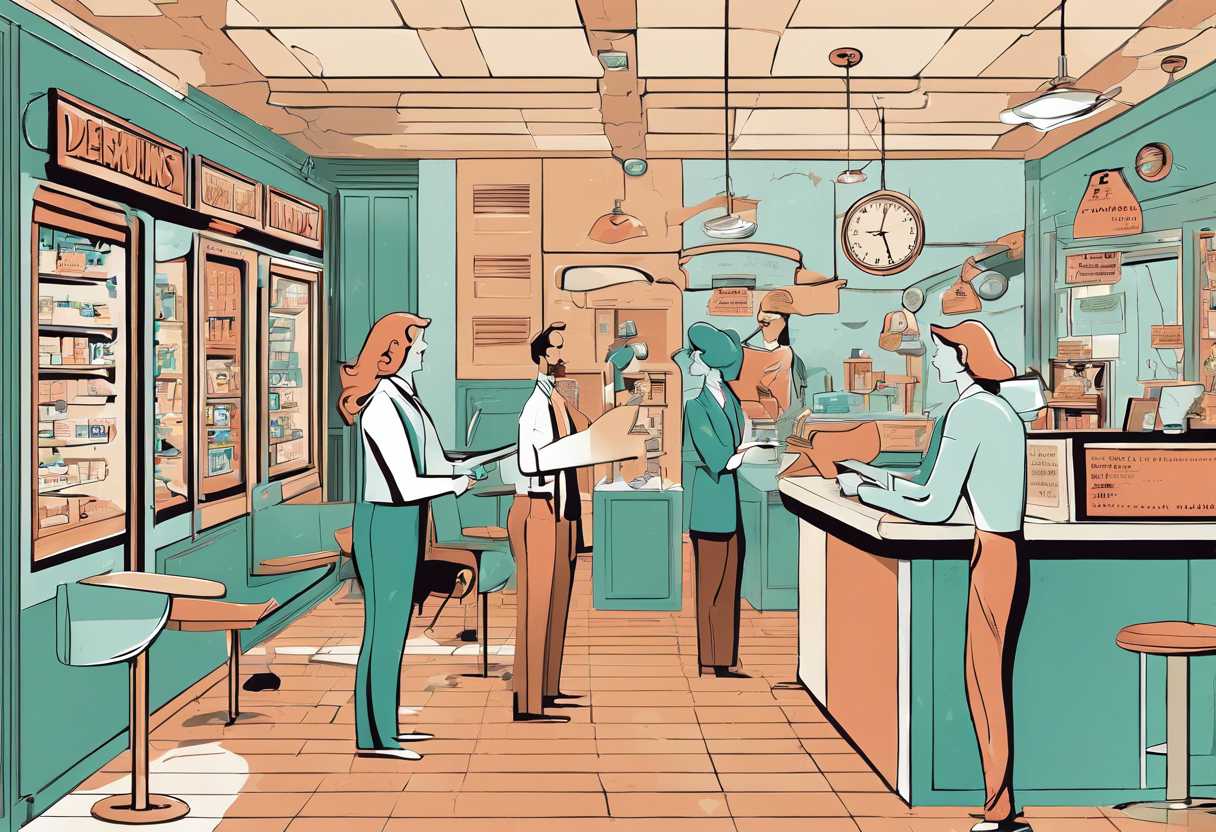Customer service is a critical aspect of any business, playing a pivotal role in shaping customer satisfaction and loyalty. But is customer service considered a skill? This blog post aims to delve into this question, exploring the significance of customer service as a valuable skill and the impact of soft skills in this domain. We will also debunk the myth surrounding whether customer service is an inherent trait or a developed skill, shedding light on the role of training in skill development. Lastly, we will discuss how honing customer service skills can contribute to professional success. Join us as we unravel the complexities of customer service and its role as a skill in the professional landscape.
Understanding the Role of Customer Service as a Valuable Skill
The Importance of Customer Service Skills
Customer service skills are essential in any industry as they directly impact customer satisfaction and loyalty. Employees with strong customer service skills can effectively handle customer inquiries, complaints, and feedback, ultimately contributing to a positive brand image and increased customer retention.
Key Customer Service Skills
Effective communication, empathy, problem-solving, and patience are some of the key customer service skills that are highly valued by employers. These skills enable employees to understand and address customer needs, resolve issues, and provide a positive customer experience.
- Effective communication: Clear and concise communication is crucial in customer service to ensure that customers feel heard and understood.
- Empathy: Being able to understand and relate to the customer’s emotions and experiences can help build rapport and trust.
- Problem-solving: The ability to think critically and find solutions to customer issues is a valuable skill in customer service.
- Patience: Dealing with challenging customers or complex problems requires patience and composure.
The Impact of Customer Service Skills on Business Success
Customer service skills play a significant role in shaping the overall customer experience and, consequently, the success of a business. According to a study by Harvard Business Review, 52% of customers have switched brands due to poor customer service. On the other hand, 86% of customers are willing to pay more for a better customer experience. This highlights the direct correlation between customer service skills and business outcomes.
| Impact of Customer Service Skills | Statistics |
| Customer Retention | It costs 5 times more to acquire a new customer than to retain an existing one. |
| Customer Loyalty | Customers who have a positive experience are 3.5 times more likely to repurchase from the company. |
| Brand Reputation | 89% of consumers have stopped doing business with a company after experiencing poor customer service. |

The Importance of Soft Skills in Customer Service
Building Rapport with Customers
Soft skills play a crucial role in customer service, particularly when it comes to building rapport with customers. Empathy, active listening, and effective communication are essential for creating a positive customer experience. When customer service representatives possess these soft skills, they can better understand the customer’s needs and provide personalized solutions, ultimately leading to higher customer satisfaction and loyalty.
Resolving Conflict and Diffusing Tension
Another important aspect of soft skills in customer service is the ability to resolve conflict and diffuse tension. Customers may become frustrated or upset when facing issues with a product or service, and it’s up to the customer service representative to handle these situations with grace and professionalism. By utilizing skills such as patience, empathy, and problem-solving, customer service representatives can effectively de-escalate conflicts and turn negative experiences into positive ones.
Enhancing Team Collaboration
Soft skills are not only valuable when interacting with customers but also when collaborating with colleagues. In a customer service environment, teamwork is essential for providing seamless support to customers. Soft skills such as teamwork, adaptability, and conflict resolution can contribute to a harmonious work environment, leading to improved productivity and overall customer satisfaction.

Debunking the Myth: Is Customer Service a Skill or an Inherent Trait?
The Nature of Customer Service
Customer service is often seen as a natural talent, something that some people are just born with. However, the reality is that customer service is a skill that can be learned and developed over time. While some individuals may have a natural inclination towards empathy and communication, the ability to provide exceptional customer service is something that can be honed through training and experience.
The Importance of Training
Training plays a crucial role in developing customer service skills. By providing employees with the necessary tools and knowledge, organizations can empower their staff to deliver outstanding customer service. Training can cover a wide range of topics, including active listening, conflict resolution, and product knowledge. Through ongoing training and development, employees can continue to refine their customer service skills and adapt to the evolving needs of customers.
The Role of Inherent Traits
While customer service can be learned, inherent traits can certainly enhance an individual’s ability to excel in this area. Traits such as empathy, patience, and adaptability can contribute to a person’s natural aptitude for customer service. However, it’s important to note that even individuals with these inherent traits still require training and practice to fully leverage their potential in a customer service role.
The Impact of Customer Service Training on Skill Development
Improved Communication Skills
Customer service training plays a crucial role in developing effective communication skills among employees. Through training, employees learn how to actively listen to customers, empathize with their concerns, and respond in a clear and professional manner. This not only enhances the overall customer experience but also improves the employees’ ability to communicate effectively in various professional settings.
Enhanced Problem-Solving Abilities
Customer service training equips employees with the necessary skills to effectively address and resolve customer issues. By learning how to analyze problems, identify root causes, and implement appropriate solutions, employees become more adept at handling challenging situations. This not only benefits the organization by improving customer satisfaction but also enhances the employees’ problem-solving abilities in their day-to-day roles.
Increased Product Knowledge
One of the key impacts of customer service training is the development of in-depth product knowledge among employees. Through training, employees gain a comprehensive understanding of the products or services offered by the organization, enabling them to provide accurate and detailed information to customers. This not only instills confidence in customers but also enhances the employees’ expertise, making them valuable assets to the organization.
How Customer Service Skills Contribute to Professional Success
Enhanced Communication Abilities
Customer service skills are essential for professional success as they enhance communication abilities. Professionals with strong customer service skills are adept at active listening, empathy, and clear communication. These skills enable them to effectively understand and address the needs of their clients, colleagues, and superiors, leading to improved relationships and successful collaborations.
Problem-Solving and Conflict Resolution
Another way customer service skills contribute to professional success is through their emphasis on problem-solving and conflict resolution. Professionals who possess these skills are equipped to handle challenging situations with grace and efficiency. They can navigate conflicts, find solutions to complex problems, and maintain a positive attitude, which is invaluable in any professional setting.
Building Trust and Loyalty
Customer service skills play a crucial role in building trust and loyalty, which are vital for professional success. Professionals who prioritize customer service are able to establish strong, long-lasting relationships with clients and colleagues. This trust and loyalty can lead to repeat business, referrals, and a positive reputation, all of which contribute to a successful career.
Conclusion
After exploring the role of customer service as a valuable skill, the importance of soft skills in customer service, debunking the myth of whether customer service is a skill or an inherent trait, the impact of customer service training on skill development, and how customer service skills contribute to professional success, it is clear that customer service is indeed a skill that can be developed and honed over time.
Customer service involves a combination of technical knowledge, empathy, communication, problem-solving, and adaptability, making it a multifaceted skill that is essential in various industries. The ability to effectively engage with customers, address their needs, and provide exceptional experiences is a valuable asset that can set individuals apart in their careers.
As professionals in the customer service industry, it is crucial to continuously invest in training and development to enhance these skills and stay ahead in a competitive market. By prioritizing the cultivation of customer service skills, individuals can position themselves for professional success and contribute to the overall growth of their organizations.
Whether you are a seasoned customer service representative or someone looking to enter the field, remember that customer service is a skill that can be learned, practiced, and mastered. Embrace the opportunity to refine your abilities and make a positive impact on the customer experience.
Keep learning, growing, and striving for excellence in customer service – it’s a skill worth cultivating.

